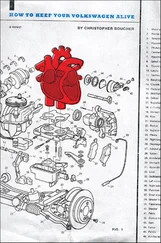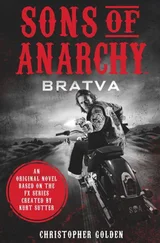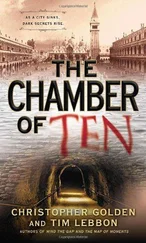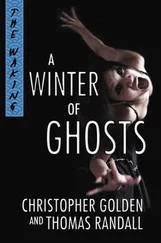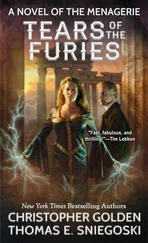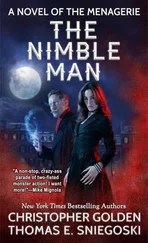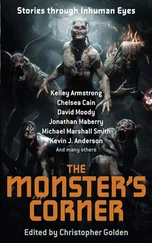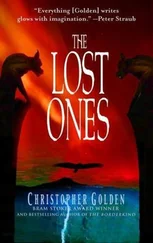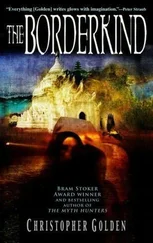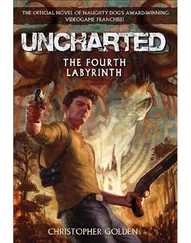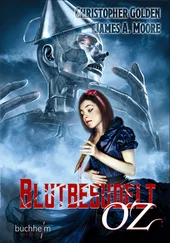“Are you asking me if you said that?” said the beagle.
“No?” I said.
“You’re not sure?”
“No I am?” I said.
“You’re asking me what you are?” the beagle inquired.
As a temporary fix, people stopped talking and suspended all prayers. Some people used sign language or Morse code; others invented complicated gestures. If you couldn’t find a way to express yourself, you just stored the question in your cheeks or swallowed it down.
We could only go so long without speaking, though; soon people were praying again, and then whispering, and then talking at full volume. Then a rally for words was held on the Town Green. “Go words!” chanted the hundreds in attendance. “Words rock!”
Select Cone Johnson took the podium and promised that he and the Board would find a way to “take back our words.” Starting tomorrow, he announced, Cones would start searching every home in Appleseed. “We’ll omit these words and phrases from every page ,” he shouted, and the crowd applauded.
And I remember seeing the story about it in the next day’s Core —the pictures of Cones kicking in doors, carrying out armfuls of expressions, handcuffing those sentences and stuffing them into the backs of cone-shaped cars. Words that tried to hide, the article said, would be immediately demeaned. When one expression tried to run? A Mother killed that sentence on sight .
When I read that story, I knew what I had to do. How long would it be before the Cones came knocking on our door? I didn’t have a choice — there was only one option. The very next morning, I woke at first light and lifted the sheet off of “I am.” ’s cage. He was curled up in the corner, snoring. I unhooked the latch, opened the door, and lifted the words out. I wrapped Sentence in my coat and carried him upstairs and outside. We crossed the street and walked through the worryfield, then into the trees and toward the Appleseed border. There were deadwords — I remember “candelabra,” “phosphate,” others — here and there, and sentence-trails criss-crossing through the brush. As we ran along the path I scanned the trees for any sign of a sentry or guardcone — anything bright orange or cone-shaped — but I didn’t see any; the woods looked clear.
A few hundred feet from the border I stopped, knelt down in the darkness, put Sentence on the wet earth, and unhooked his leash. “ ‘I am.’?” I said.
He blinked his eyes in the pink light.
“You can’t stay in Appleseed anymore. You have to go.” I pointed to the town line about a hundred feet away. “That way,” I said.
“I am,” said Sentence, “still sleepy-eyed, he blinked his eyes and—”
“I know, it’s early and this is probably confusing,” I said. “But you just have to listen to what I’m saying to you.”
“Apprehensive,” said Sentence, “I am wished for home.”
“Do you know what they’re doing to language, ‘I am.’? What will happen to you if they find you?”
“Quiet,” said Sentence, “I am can be very hiding and quiet.”
“I’ll see you again — I promise,” I said, choosing my words carefully; any misuse would bring Cones right to us. “But I can’t take care of you anymore. You’re free now. OK? You’re free.”
There were tears in the sentence’s eyes. “Wishing for home,” he said, “I am sorrowly hoped to convey—”
Then I heard a sound in the trees: the snap of a twig. I searched the path behind me, but I didn’t see anyone.
“Appreciative,” said the sentence, “—I am would think back on that time, and their friendships—”
Another twig snapped — this one from somewhere high up. I looked into the trees. I heard a shuffling, and then a leaf fell away from a branch and I saw—
Was it?
Shit: A flare of orange plastic between the leaves.
I turned to “I am.”. “Run. Now . Fast as you can.”
Sentence flashed me a final look and took off, sprinting toward the town line. Its cover blown, the Cone shimmied down the bark and vaulted past me and after “I am.” Sentence looked back, saw the Cone behind him, and sped up, revising as he ran: “I am running run fast.”; “I am sprinting with the wind through my face!” And then, it was like he shifted into high gear or something — I’d never seen language move so fast. His letters italicized and he kicked up leaves behind him. “The sounds are in my hear-and-now: Flams! Sizzion! Toreabloo!”; “I am this word and that word!”
“Run on, ‘I am.’!” I shouted.
Sentence crossed the town line; the Cone stopped at the border and doubled over, his shoulders heaving. But “I am.” didn’t slow down — he kept moving, kept getting louder, truer. “Newchording, Me-oh-mying, transmuliterating!”
I hooted to the sentence. “Keep going, ‘I am.’!”
“Anything and everything! Holy shouts and bouts and rambles! Cries and thanks and bellows, now and forever amen! To on and on and never—”
That was the end for me, though — without “I am.” I lost myself. I forgot to live and died. I had no friends or family to remind me who I was, or why I was here. You really can’t live that way for very long.
One morning, I was cleaning up dead letters in the worryfields and listening to the remnants of music on my headphones when a bookworm — the sentence “You should just go ahead and die.”—emerged from a bookwormhole. The sentence was wearing a blue concert T-shirt advertising a band I didn’t recognize, and he seemed to be lost. “Excuse me,” said “You should just go ahead and die.”. “Can you tell me how to get back to Fialky’s Fields?”
I couldn’t answer him — I was struck by the words of his face. “I should?” I said.
“I thought I knew the way, but I kind of got turned around,” said “You should just go ahead and die.”.
“And if I did,” said a thought. “Would this all go away? The blight? The darkness?”
“ Everything would go away,” the sentence said.
I still had the shovel I’d used to bury my house. I picked it up, put it to the page, and began to dig.
“Good,” said the sentence. “Yup, you got it.”
Soon I’d made a hole in the page about the size of my body. When I was finished, I tossed aside my headphones and lay down. “Could I ask you — if you wouldn’t mind — to bury me?”
“You should just go ahead and die.” looked at his watch. “I’m supposed to get back to my novel by noon.”
“Just a few shovelfuls, maybe.”
The sentence smiled curtly. “Sure,” he said, and he picked up the shovel and started pitching page over me. As he was working, a prayer came in from overhead. “  ?” It was my Mom. I didn’t answer.
?” It was my Mom. I didn’t answer.
“You should just go ahead and die.” filled the page in around me, leaving only my face exposed. “How’s that?” he said.
“Good,” I said. “Nice and warm.”
“  !” prayed my Mom.
!” prayed my Mom.
“What now?” I shouted to the sentence.
“Now nothing,” he said.
“For how long?” I said.
“Forever, probably,” said “You should go ahead and die.”. Then he picked up a shovelful of page and threw it over my face. I felt the weight of that page — of all of the pages — in my eyes and in my mouth; I choked on it; it filled my throat and my lungs. Then I wasn’t; I let out my breath and died.
When you die, your parents hear it. They know your death in their ears and their hearts and their bones. My Mom was welding a footbridge out past Wolf Swamp when she heard the notes of my death knell. “No,” she said into her welder’s mask. “  ?” she prayed.
?” she prayed.
Читать дальше
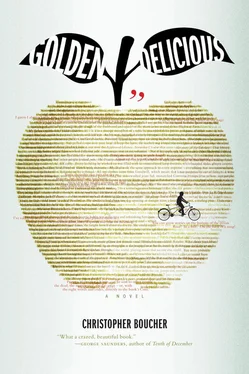
 ?” It was my Mom. I didn’t answer.
?” It was my Mom. I didn’t answer.
